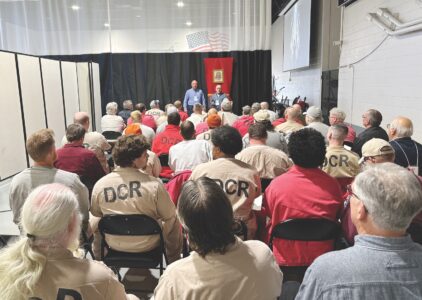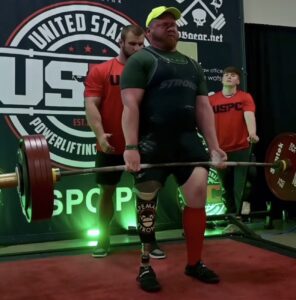Contract signed for 18-month drug court
Printed, signed and dated, the contract between Washington County and Oriana House officially launched a special drug court docket program Thursday.
The contract was approved by the Washington County Commissioners in a public meeting Thursday after being written and reviewed by assistant prosecutor Alison Cauthorn and both Court of Common Pleas judges.
“This will be no added burden on the county general fund,” Commissioner David White noted as he signed the contract.
White, Commissioner Ron Feathers and Commissioner Rick Walters serve as the fiscal review and authorization authority for the county and so signed the contract on behalf of Common Pleas Judge Mark Kerenyi.
They authorized the contract for 18 months, with half of the budget coming from the Washington County Behavioral Health Board and the other half coming from state funding, for a total contract of $300,000.
“Essentially what happened today is they’ve authorized us to partner with Oriana and build this drug court program,” explained Kerenyi. “And Oriana House is hiring the two employees so that’s not on the county either.”
He said he hopes the new docket will be certified by the Ohio Supreme Court in the next two months with a tentative opening date for drug court in January, a goal which Jason Varney, vice president of correctional programs for Oriana House in northcentral and southeastern Ohio, said is attainable.
“I feel we could be ready to go by the first of the year. We’re starting to search for the two employees now and we will start training them,” said Varney. “And we have the templates for the participant agreement and client handbook ready for Judge Kerenyi to review with the community partners and focus for Washington County.”
Kerenyi said before the docket starts accepting those charged with drug-related felonies, criteria for entry must be established.
“So next the court will right a local order, a participant agreement and program handbook and file those with the Ohio Supreme Court for a preliminary certification,” he explained. “Part of that will mean meeting with partners after the election to decide the criteria for who we’ll let in.”
He said partners include the county behavioral health board, prosecutor’s office and defense attorneys, law enforcement heads, Adult Parole Authority, three local treatment providers, Washington County Children Services and Washington County Job and Family Services.
Kerenyi originally had those partners in the room for the initial interest presentation by Varney in August.
There Varney explained how the program is run in other special dockets across the state, with key components including regular attendance by the judge, counsel, prosecutor, treatment providers and law enforcement to staff meetings and judicial status hearings.
There are also at least two instances of urine drug testing per week in the initial months of the program.
Varney noted a minimum of 420 days in a drug court program to be successful with five phases:
1. Compliance: minimum 60 days.
2. Engagement: minimum 90 days.
3. Growth: minimum 90 days.
4. Development: minimum 90 days.
5. Maintenance: minimum 90 days.
Kerenyi said a benefit of this program will be a rolling acceptance as offenders meet the criteria to enter the drug court.
“So we can get you into treatment as soon as possible,” he explained. “This pairs the carrot we already have of free treatment through insurance, graduated rates and behavioral health picking up the costs, with the stick of the court.”
He said the “stick” portion, or motivation to successfully complete a drug court program, is more than just jail time.
“Yes, it could mean you spend a weekend in jail if you mess up, but there are also community service hours. Maybe you’re required to be in the program longer or we increase drug testing, meetings with the case manager or add electronic monitoring to you,” added the judge. “This is why it’s so critical that Issue 1 on the ballot doesn’t pass. If I can’t see you in common pleas for the drug offenses then I can’t motivate you to get clean.”
Policy Director Dustin McKee, with the National Alliance on Mental Illness for Ohio, said the constitutional amendment on the November ballot is also not supported by his organization.
“We have decided to oppose it because while we believe in the spirit of the reform, we don’t support going about it by constitutional amendment,” he said. “Laws made by the legislature can be adapted and changed, and well, this couldn’t.”
Instead, within the drug court program, sanctions and rewards are to be in place for participants.
According to the National Association of Drug Court Professionals, graduated sanctions and rewards are effective in improving the outcome for drug offenders.
The association said these provide strong motivation for behavioral change along with medically-assisted substance abuse treatment when needed.
Varney explained that the installation of the program in Washington County includes the hiring of two positions; a program coordinator and a caseworker.
“With this contract signed we can then go out and look to fill those positions and look to rent a space near the courthouse,” he said, noting until space is selected the two employees will be housed at the Ohio 7 facilities already in use by Oriana. “But because Oriana is a nonprofit we budget into these contracts the cost of filling an office too as a one-time start-up cost to pay for desks, chairs and computers, too.”
Kerenyi said additional drug testing could be performed by either the Adult Parole Authority or the case manager, but there will also be family and employment components required in the program.
“Employment needs to be a part of it, as does being a responsible parent,” he concluded.
By the numbers:
Washington County Drug Court:
Funding:
• Ohio Targeted Community Alternatives to Prison grant: $150,000.
• Washington County Behavioral Health Board: $150,000.
• *This funding is in accordance with an 18-month contract.
Annual Costs:
• Start up equipment (one-time): $11,820.
• Personnel salary and benefits (annual): $127,209.53.
• Operating expenses:$31,999.68.
• Administration costs (insurance, accounting, payroll, human resources and information technology support): $17,138.88.
• Rentals: $7,776.
• Staff training, conference and seminars: $2,160.
• Advertising and printing: $2,008.80.
• Office supplies and computers: $1,944.
• Communication: $972.
• Program expenses: $28,970.57.
• Lab supplies for offender drug testing: $20,656.35.
• Program materials: $7,020.
• Program transportation: $1,294.22.
Total Annual Cost: $199,999.79.





